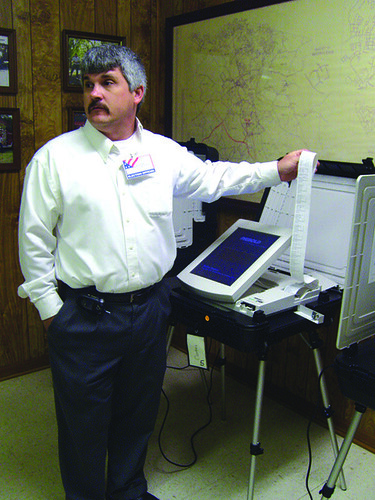Northwest Georgia Regional Hospital will not close until all necessary services are in place to absorb the patients into the community.Just like in Milledgeville, the announcement came early in the legislative session and the community's legislative delegation can do little more than pepper the Commissioner of Behavioral Health and Developmental Disabilities with questions during budget hearings at the Capitol.
That's the promise made to the legislature's joint appropriations committee this morning by Dr. Frank Shelp, commissioner of the Department of Behavioral Health and Developmental Disabilities.
He was noncommittal when asked if that means the proposed June 30 closing date of the hospital might be pushed back, reiterating that it's important to set deadlines.
"We have dates as targets," he said. "But we're not under any compulsion to close the Rome hospital prior to having those other services up and running," he said.
The announcement of the closing of NGRH is the latest news about the fundamental changes taking place in Georgia's mental health system as a result of the settlement agreement between the State of Georgia and the US Department of Justice concerning the care of people with mental illness and developmental disabilities in the state's network of regional mental health facilities and the state's failure to meet the standards for serving consumers in the most integrated community setting possible, per the Olmstead v. L.C. decision, which originated in Georgia.
This Justice Department press release is a pretty succinct summary of what's going to happen in the next several years.
Under today’s agreement, over the next five years, Georgia will increase its assertive community treatment, intensive case management, case management, supported housing and supported employment programs to serve 9,000 individuals with mental illness in community settings. The agreement will also increase community crisis services to respond to and serve individuals in a mental health crisis without admission to a state hospital, including crisis services centers, crisis stabilization programs, mobile crisis and crisis apartments; create at least 1,000 Medicaid waivers to transition all individuals with developmental disabilities from the state hospitals to community settings; and increase crisis, respite, family and housing support services to serve individuals with developmental disabilities in community settings.Central State Hospital was the first, and Northwest Georgia Regional Hospital won't be the last. But in a strange note that spooked me when I first read it, the News-Tribune writes:
[Department of Behavioral Health and Developmental Disabilities Spokesman Tom] Wilson said 54 of the current patients have been admitted to the mental health ward, and 73 patients admitted by a court. They will have to be moved to state hospitals in Milledgeville or Atlanta.Then I remember that the Payton Cook Building just opened a few years ago.
But Rome will not have a new forensics unit to save any state jobs as Georgia moves non-criminals living with mental illness and developmental disabilities into non-profit and for-profit private mental healthcare providers. Again, from the News-Tribune:
The state-run mental health hospital has about 180 patients and 764 employees, according to Tom Wilson, spokesman for the state Department of Behavioral Health and Developmental Disabilities.Though it should be noted that DBHDD will be creating a lot of these community care settings, and that will create job opportunities for some of the employees who will be affected by the closings.
I share all this because it should be a warning the entire State of Georgia, especially those in the mental health system, those with family in the system and employees of the system: Don't think this is just something happening at some other hospital, in some other part of the state. The Federal Government and the State of Georgia are revolutionizing the delivery of mental health services--for better or for worse. We simply don't know yet.
And residents of Augusta, Columbus, Decatur, Savannah and Thomasville should heed these words state Rep. Rusty Kidd uttered roughly nine months ago:
Kidd said it is clear from legislators’ reactions that people from different parts of the state outside of the Middle Georgia region are not hearing about the closing of Central State and the fate of employees there.
“I hope [legislators and DBHDD officials] hear this and take it to heart, so that they will be more sensitive to employees — all employees not just new or long-time employees — now and in the future,” he said. “Everyone needs to be aware that these are people who have had jobs there for a long time, and to lose a job is very serious. [The legislature and state government] need to help them transition into new jobs.”

